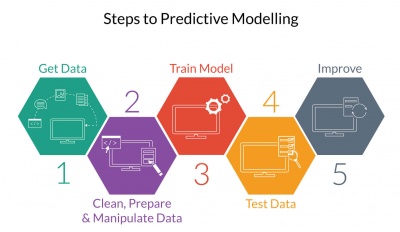Machine learning: Difference between revisions
No edit summary |
No edit summary |
||
| Line 9: | Line 9: | ||
# [[Behavioural data]] | # [[Behavioural data]] | ||
# [[Cloud delivery models:]] | # [[Cloud delivery models:]] | ||
# [[Infrastructure as a service (IaaS)]] | ## [[Infrastructure as a service (IaaS)]] | ||
# [[Platform as a service (PaaS)]] | ## [[Platform as a service (PaaS)]] | ||
# [[Software as a service (SaaS)]] | ## [[Software as a service (SaaS)]] | ||
# [[Cloud deployment models]] | # [[Cloud deployment models]] | ||
# [[Collaborative filtering]] | # [[Collaborative filtering]] | ||
Revision as of 08:59, 8 June 2022

Case study notes[1]
Introduction[edit]
Using algorithms that iteratively learn from data, machine learning allows computers to find hidden insights without being explicitly programmed where to look. [2] This is important to our case study as it allows self-driving cars to learn from it’s environment and mistakes.
Terminology[edit]
- Behavioural data
- Cloud delivery models:
- Cloud deployment models
- Collaborative filtering
- Content-based filtering
- Cost function
- F-measure
- Hyperparameter
- K-nearest neighbour (k-NN) algorithm
- Matrix factorization
- Mean absolute error (MAE)
- Overfitting
- Popularity bias
- Precision
- Recall
- Reinforcement learning
- Right to anonymity
- Right to privacy
- Root-mean-square error (RMSE)
- Stochastic gradient descent
- Training data
Examples[edit]
An excellent, and I truly mean excellent example is MarI/O, a machine learning program that learns how to play mario, and mario kart.
Super Mario World: https://www.youtube.com/watch?v=qv6UVOQ0F44
Mario Kart: https://www.youtube.com/watch?v=S9Y_I9vY8Qw
[3]
